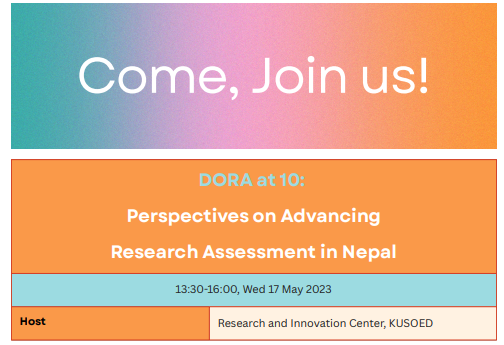In a much aware world of academic assessment (for hiring, promotion and grants), the use of metrics for research assessment has significantly reduced. However, the opposite appears to be the case in Nepal, including for the UGC’s research assessment policies and different university’s hiring and promotion criteria, where indexing and impact factors still remain a prevalent tool (in fact, the misuse of such metrics has been institutionalized) in evaluating researchers. Recently, some researchers have started talking of the impact factor game and are seeking better way to assess scientific outputs. As such, against the policy structures and processes, the voice on alternative ways for more constructive and meaningful measures of research assessment are somehow overshadowed in the Nepali context – which appears to be so in the South Asian context as a whole. In this context, it is timely to spark a discourse on how we can better evaluate the outputs of scientific research. How long do we rely on the use of proxy measures? Isn’t it time for us to rethink existing research assessment policies and practices and to create a framework for driving institutional change in terms of how we judge research? Centering on these questions, we intend to discuss our experiences and perspectives on research assessment in Nepal with a futuristic orientation on creating an alternative framework for research assessment.

